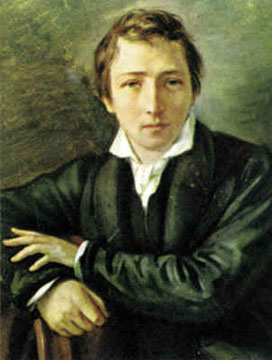An essay by this German poet on one of the most exquisite literary works known to man. You can read the original here.
From among the actually historical dramas I turn to those tragedies whose tales are either purely contrived or hewn from old Sagas and narratives. Macbeth transports us to these compositions in which Shakespeare's great genius may unfold his wings most pertly and freely. The contents are borrowed from an old legend; they do not belong to history. Nevertheless the play makes some claim to historical beliefs since in it the forebear of the Royal House of England played a role. Macbeth was staged during the reign of King James the First, who is famously said to be descended from the Scotsman Banquo. In this regard the poet also wove into his drama a few prophecies about the reigning dynasty.
 Macbeth is a favorite of critics who see it as an opportunity to promote as widely as possible their own views about the the ancient "drama of fate," in comparison with the concept of fate possessed by modern playwrights. On this subject I will allow myself only a passing remark.
Macbeth is a favorite of critics who see it as an opportunity to promote as widely as possible their own views about the the ancient "drama of fate," in comparison with the concept of fate possessed by modern playwrights. On this subject I will allow myself only a passing remark.
Shakespeare's idea of fate is different from the idea of fate in ancient times in the same way that the soothsayer women, who meet Macbeth in the old Nordic legend with prophecies of the crown, differ from any sisterhood of witches one sees in Shakespeare's tragedies. These wondrous women in the Nordic legend are apparently Valkyries, frightful goddesses of the air who hover above the battlefields, decide on victory or defeat, and can be seen as the actual levers of human fate when the latter were initially dependent on the outcome of sword fights. Shakespeare transformed them into trouble-making witches, stripping away all the awesome grace of Nordic sorcery. He made them into androgynous miscreations who knew how to summon monstrous phantoms and fomented decay out of malicious glee or as bidden by Hell itself. They may be but the servants of Evil, yet whoever allows himself to be fooled by their words will be destroyed in body and soul. Shakespeare thus translated the old pagan goddesses of fate and their venerable magic into Christian terms, and the downfall of his hero is therefore no longer something predetermined and necessary but something as avoidable as ancient fate. Yet it is indeed the consequence of the temptations of Hell that so knows how to entrap the human heart with its most intricate nets. Macbeth falls under the power of Satan, the primordial Evil.
It is interesting to compare Shakespeare's witches to the witches of other English poets. One notices that Shakespeare cannot quite free himself from the old pagan point of view, and his coven of sisters is therefore noticeably more grandiose and respectable than the witches of Middleton who possess a more distinctly evil hag nature and play petty tricks. They also only damage the body: they have little sway over the spirit and can do no more than incrust our hearts with jealousy, resentment, prurience and suchlike leprosies of feeling.
The reputation of Lady Macbeth, whom one had thought a very evil person for two centuries now, has improved in Germany the last twelve years to her benefit. The pious Franz Horn, as it were, made the remark in the Brockhausen daily that the poor lady had been hitherto wholly misunderstood, that she truly loved her husband, and that all in all she possessed a lovable disposition. This opinion Mr. Ludwig Tieck then sought to buttress with all his science, erudition, and philosophical depth. And it did not take long for us to behold Madame Stich upon the royal stage in the role of Lady Macbeth cooing like a turtle dove, so that no heart in Berlin could resist these tender tones and many a lovely eye was overcome with tears upon seeing the good Macbeth. This happened, as mentioned, about twelve years ago, in that gentle time of restoration where we had so much love within us. Since then bankruptcy has spread, and if many crowned persons do not enjoy our effusive love, then the guilt lies with those people like the Queen of Scotland who during this same restoration period thoroughly exploited our hearts.
Whether Germany still advocates such amiability towards the aforementioned lady, I cannot say. Since the July Revolution our views on many matters have changed, and perhaps even in Berlin one may come to see that the good Macbeth was a rather foul beast.
 Friday, January 6, 2017 at 23:49
Friday, January 6, 2017 at 23:49  Upon the wan-lit ocean beach,
Upon the wan-lit ocean beach,  Heine in
Heine in  German literature and film,
German literature and film,  Poems,
Poems,  Translation
Translation 


